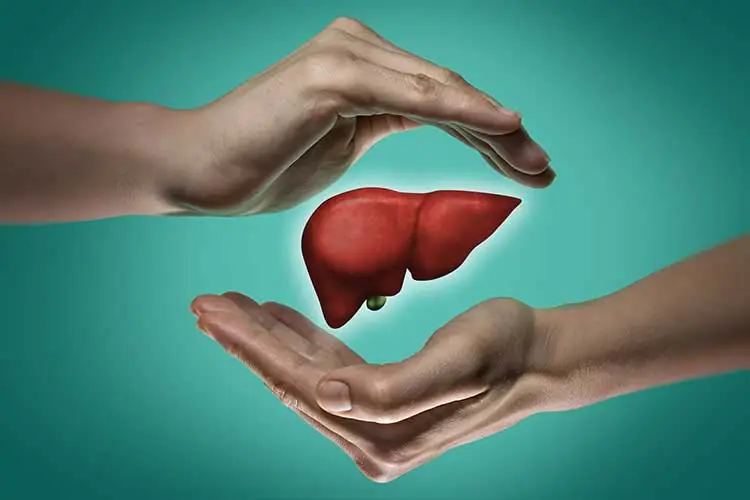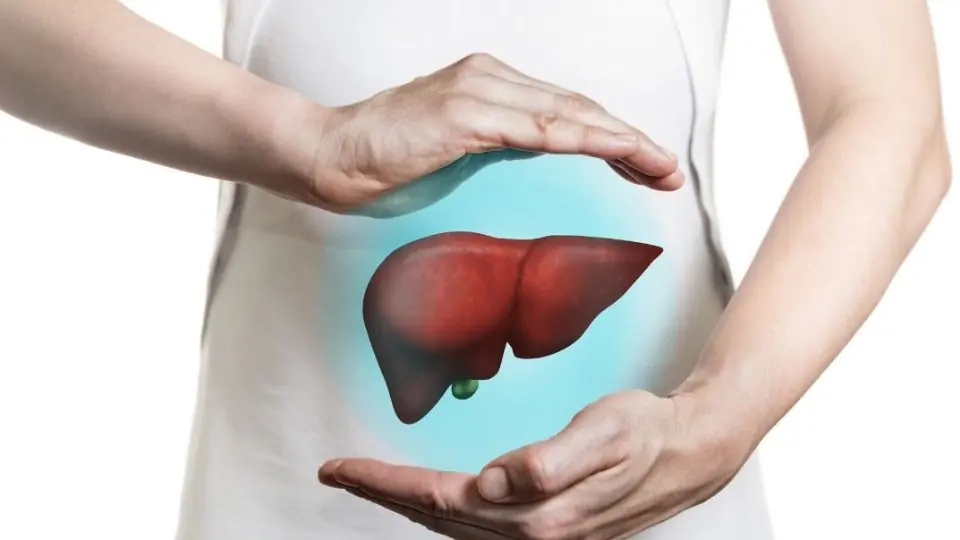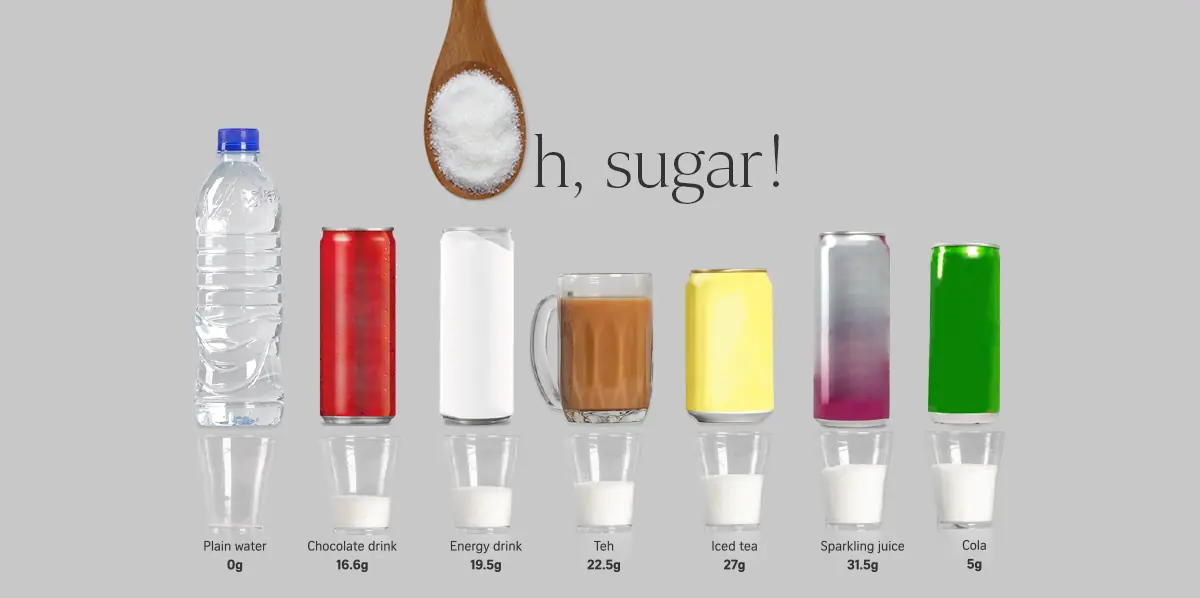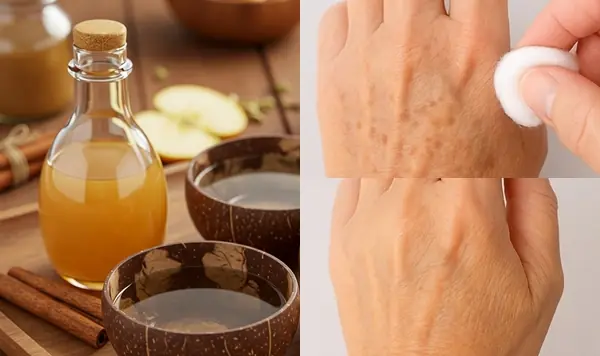
10 Popular Types of Pasta Sauces and What to Pair Them With
Pasta dishes are loved worldwide, and the sauce makes all the difference. Here are 10 popular pasta sauces and tips on what types of pasta, ingredients, and wines pair best with each.
A well-balanced diet is crucial for maintaining optimal health, and vitamin and mineral deficiencies can lead to a range of uncomfortable symptoms. Identifying these deficiencies early can help you take steps to improve your health and prevent further complications. This article discusses 8 common signs of vitamin and mineral deficiencies, providing insights into how they manifest and the dietary changes you can make to address them.
1. Brittle Hair and Nails
One of the first visible signs of vitamin deficiency is brittle hair and nails. If you notice that your hair is thinning, breaking, or falling out more than usual, or if your nails are weak and peeling, it could be a sign of a biotin (vitamin B7) deficiency. Biotin plays a crucial role in converting food into energy and is vital for the health of hair and nails.
How to Fix It: Biotin is commonly found in foods like eggs, organ meats, fish, meat, dairy, nuts, seeds, spinach, broccoli, sweet potatoes, and bananas. If you're struggling with brittle hair and nails, consider increasing your intake of biotin-rich foods. In some cases, a supplement with 30 micrograms of biotin per day might be beneficial, but it’s always best to consult with a healthcare professional before adding any supplements.
Summary: A deficiency in biotin, although rare, can cause brittle hair and nails. Biotin-rich foods like eggs, fish, and nuts can help restore hair and nail health.
2. Mouth Ulcers or Cracks in the Corners of the Mouth
Recurring mouth ulcers or cracks at the corners of the mouth are often linked to deficiencies in iron, vitamin B1 (thiamine), B2 (riboflavin), and B6 (pyridoxine). These lesions can cause discomfort and make eating or speaking difficult. Studies suggest that deficiencies in these vitamins can contribute to frequent mouth ulcers, indicating a nutritional imbalance.
How to Fix It: To help alleviate mouth ulcers, increase your intake of iron-rich foods like meat, fish, legumes, and dark leafy greens. For B vitamins, add whole grains, eggs, dairy, poultry, and nuts to your diet. If symptoms persist, it’s important to consult with a healthcare provider for appropriate tests and treatment.
Summary: Mouth ulcers and cracks in the mouth can be a sign of deficiencies in iron and B vitamins. Including iron-rich and vitamin B-rich foods in your diet can help alleviate these symptoms.
3. Bleeding Gums
Bleeding gums, especially after brushing or flossing, can indicate a lack of vitamin C. Vitamin C plays a crucial role in immune function and collagen production, and a deficiency can lead to weakened gums, tooth loss, and even scurvy, a condition that severely impacts the skin, gums, and overall health.
How to Fix It: To combat vitamin C deficiency, incorporate more fruits and vegetables into your diet, such as citrus fruits, strawberries, bell peppers, and broccoli. Ensure you’re eating at least 1.5–2 cups of fruit and 2–3 cups of vegetables daily to meet your vitamin C requirements.
Summary: Bleeding gums are often caused by a vitamin C deficiency, which can be corrected by eating more fruits and vegetables rich in vitamin C.
4. Poor Night Vision and White Growths on the Eyes
Night blindness, or difficulty seeing in low light, is commonly linked to a deficiency in vitamin A. Vitamin A is essential for the production of rhodopsin, a pigment found in the retina that helps you see in low-light conditions. If left untreated, vitamin A deficiency can lead to xerophthalmia, a serious eye condition that can cause permanent blindness.
How to Fix It: To increase your vitamin A intake, add foods like organ meats, dairy products, eggs, fish, and dark leafy greens to your diet. Carotenoid-rich vegetables, such as sweet potatoes, carrots, and butternut squash, are excellent sources of vitamin A.
Summary: Night blindness and white growths on the eyes can be signs of vitamin A deficiency. Boosting your intake of vitamin A-rich foods can improve your vision and eye health.
5. Scaly Patches and Dandruff
Seborrheic dermatitis and dandruff are common skin conditions that can result from a lack of certain nutrients, such as riboflavin (B2) and pyridoxine (B6). These conditions cause flaky, itchy skin, often on the scalp, face, and upper body. Low levels of these vitamins may exacerbate symptoms of dandruff and seborrheic dermatitis.
How to Fix It: To help alleviate these symptoms, increase your intake of riboflavin and pyridoxine-rich foods like eggs, fish, meat, legumes, nuts, and green leafy vegetables. A diet rich in these vitamins may help improve skin health and reduce the severity of dandruff and seborrheic dermatitis.
Summary: Dandruff and scaly skin patches can be signs of riboflavin and pyridoxine deficiencies. Eating foods rich in these nutrients can help reduce symptoms.
6. Hair Loss
Hair loss is a common issue that affects both men and women. It can be caused by a lack of iron, biotin, niacin (vitamin B3), and essential fatty acids. Iron is necessary for the production of hair follicles, while biotin, niacin, and fatty acids support hair growth and strength.
How to Fix It: For hair loss caused by nutrient deficiencies, eat more iron-rich foods like lean meats, legumes, and dark leafy greens. Biotin-rich foods such as eggs, fish, and nuts can help strengthen hair, while omega-3 fatty acids from walnuts, flaxseeds, and fatty fish promote healthy hair growth. It’s important to address the root cause of hair loss, so consulting with a healthcare provider is essential.
Summary: Hair loss can be caused by deficiencies in iron, biotin, niacin, and essential fatty acids. A diet rich in these nutrients may help prevent or slow down hair loss.
7. Red or White Bumps on the Skin
Keratosis pilaris, a condition characterized by small, red or white bumps on the skin, is often associated with low levels of vitamins A and C. These bumps are caused by the buildup of keratin in hair follicles and are common on the arms, thighs, and buttocks.
How to Fix It: To address keratosis pilaris, increase your intake of vitamin A and vitamin C. Foods such as organ meats, dairy, eggs, and fish are excellent sources of vitamin A, while citrus fruits, strawberries, and bell peppers are rich in vitamin C. A balanced diet with these vitamins can help improve the appearance of the skin.
Summary: Red or white bumps on the skin may indicate a vitamin A and C deficiency. Eating more foods rich in these vitamins can help reduce the appearance of keratosis pilaris.
8. Restless Leg Syndrome
Restless Leg Syndrome (RLS) is a condition that causes an uncontrollable urge to move the legs, often accompanied by discomfort or an itching sensation. Low iron levels are commonly linked to RLS, as iron is necessary for proper nerve function.
How to Fix It: If you suffer from RLS, increasing your intake of iron-rich foods like lean meats, poultry, legumes, anddark leafy greens can help alleviate symptoms. Combining iron-rich foods with vitamin C-rich fruits can enhance iron absorption, making it more effective in treating RLS.
Summary: Restless Leg Syndrome may be linked to low iron levels. Increasing iron intake and pairing it with vitamin C can help manage symptoms.
The Bottom Line
A balanced diet that includes a variety of vitamins and minerals is essential for overall health. If you experience any of the symptoms mentioned above, it could indicate a deficiency in one or more nutrients. By adjusting your diet to include more nutrient-dense foods, you can address these deficiencies and improve your health. However, it’s important to consult a healthcare provider before making significant dietary changes or starting supplements, as over-supplementation can lead to other health issues.
FAQ
Can a vitamin deficiency cause weight gain?
Yes, some vitamin deficiencies, such as those in vitamin D and thyroid-related nutrients, can contribute to weight gain due to hormonal imbalances or metabolism issues.
How long does it take to correct a vitamin deficiency?
The time it takes to correct a deficiency depends on the severity and the vitamin in question. For example, iron deficiency may take a few weeks to resolve with proper diet and supplementation, while vitamin D may take longer depending on your sun exposure and supplementation habits.
Should I take vitamin supplements if I have symptoms of a deficiency?
Before taking supplements, it’s best to consult with a healthcare professional. They can help identify any deficiencies through blood tests and recommend the appropriate treatment.
By recognizing the common signs of vitamin and mineral deficiencies, you can take proactive steps to address them, ensuring your body functions optimally and preventing long-term health issues.

Pasta dishes are loved worldwide, and the sauce makes all the difference. Here are 10 popular pasta sauces and tips on what types of pasta, ingredients, and wines pair best with each.

Food adulteration is widespread, but with simple home tests, you can easily detect common adulterants in your food and ensure what you're consuming is safe.

Liver health is crucial to overall well-being, and several herbs may help support and protect the liver. Here are the 10 most effective herbs for liver health, along with the necessary precautions.

Even with just 10 minutes to spare, you can tackle a variety of cleaning tasks that will make your home look fresh and tidy. Here are 10 things you can clean in 10 minutes or less!

From turmeric to magnesium, explore 9 home remedies that are supported by scientific research, offering natural solutions to common ailments like pain, inflammation, and digestion issues.

Pesto is a versatile and flavorful sauce that adds a fresh touch to any dish. Here are 6 easy-to-make pesto recipes, each offering a unique twist on the classic.

A balanced diet is key to maintaining optimal health. Learn how specific foods support the health of various organs and systems, from your heart to your hair.

Craving a quick dessert? Mug cakes are the perfect solution for satisfying your sweet tooth in minutes, with these 7 easy-to-make recipes that deliver amazing results.

Good sleep is essential for maintaining physical and mental health.



Baking is both an art and a science, and understanding the right ratios of ingredients can be the difference between a perfectly baked treat and a failed attempt. Here’s a guide to help you nail your baking recipes by understanding the key ratios involv

Dealing with emotions effectively is crucial for maintaining mental and physical health. Whether it's frustration, anger, sadness, or happiness, understanding and managing these feelings can enhance your overall well-being.

Many popular beverages contain more sugar than you might think, and it's important to understand how much sugar you're consuming to avoid the negative health impacts.

Tired of pests around your house? These natural, homemade bug repellents can help you eliminate ants, mosquitoes, cockroaches, and other insects without the use of harsh chemicals.

Looking for a healthy, refreshing drink to enjoy this summer? Here are 6 delicious iced tea recipes packed with health benefits that you can easily prepare at home!

Discover the amazing health and beauty benefits of 10 powerful herbs that go beyond adding flavor to your food and can improve overall well-being.



A photo from my late aunt’s cabin led me on a journey of grief, reflection, and finally embracing life’s changes—her true lesson for me.

A boy’s curious question during a school presentation on snakes sparked a powerful conversation about ethics, kindness, and how one simple inquiry can inspire change.

After almost a year apart, seeing my husband and daughter reunited stirred a storm of emotions—pa!n, hope, and the difficult journey of moving on.

A little boy’s innocent dream to become a doctor takes on deep meaning when he reveals the first person he wants to save—his ailing grandpa. A story of hope, love, and the power of belief.

After a tough morning, a kind police officer’s words to my withdrawn son sparked hope and reminded me that sometimes, a stranger’s kindness is exactly what we need.

For 80 years, my grandma drank a glass of wine every night. Last night, she revealed the heartbreaking story behind it—a journey of survival, courage, and resilience.

A heartwarming small-town mailman becomes the center of a chilling mystery when unexpected letters arrive. Discover the suspense, hidden secrets, and a surprising twist that changes everything.

Inigo Pascual opens up about the invaluable guidance he receives from his father, celebrated actor Piolo Pascual, especially when tackling challenging dramatic scenes in his acting career.

In a surprising turn of events, Kapuso actor David Licauco shares his unique connection with the iconic reality show, 'Pinoy Big Brother.'


Ruffa Gutierrez’s heartfelt birthday greeting for boyfriend Herbert Bautista melts hearts online. See how their quiet yet meaningful moments captured the attention of many fans.

Atasha Muhlach steps away from the popular noontime show ‘Eat Bulaga’ due to scheduling conflicts with her lead role in the upcoming series ‘Bad Genius.’ Find out what’s next for the rising star.

Vincent Co reportedly deeply in love with Bea Alonzo — sources reveal

David Licauco opens up about his unforgettable experience inside the "Pinoy Big Brother" house, sharing revelations, gratitude, and a surprising confession about his journey in the reality show.

Ashtine Olviga opens up about her chemistry with Andres Muhlach in their new TV series and shares surprising insights about his personality, generosity, and humility despite his famous lineage.

After more than a week of silence and concern, Vivamax star Karen Lopez opens up about her absence, apologizing and sharing her journey toward mental and emotional recovery. Read her heartfelt message here.


A woman’s quiet struggle with grief and depression went unnoticed until her dog saved her life. This touching story of love, loyalty, and family highlights the importance of being there for those who need it most.

While Bea Alonzo and billionaire businessman Vincent Co continue to make headlines due to their recent outings, reports about a potential engagement in Spain have emerged. However, neither Bea nor Vincent has confirmed the nature of their relationship or

Apple cider vinegar is a simple, natural way to reduce age spots and restore a more even skin tone - right from your kitchen.